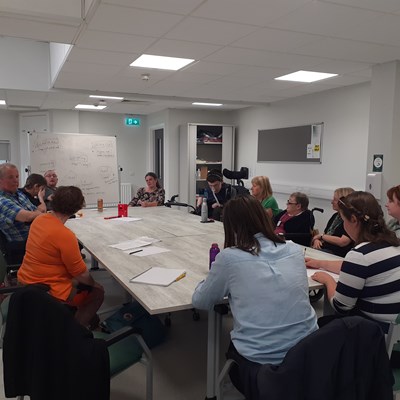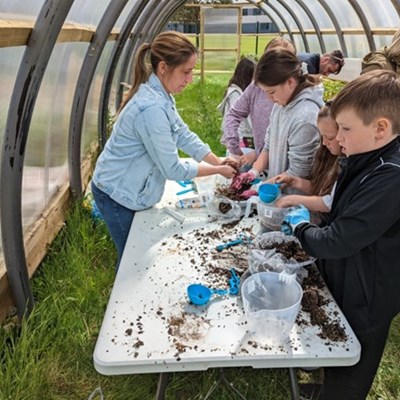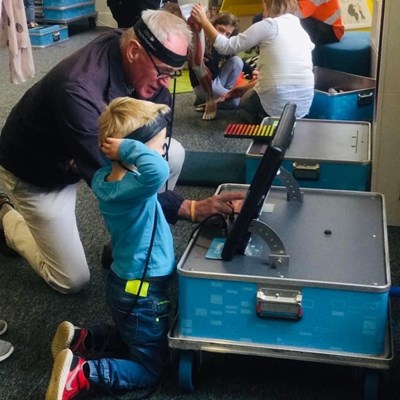Develop Partnerships which support more resilient, fairer, healthier communities.
Libraries consistently deliver services in partnership with organisations both locally and nationally. It is essential for libraries to develop new and innovative partnerships and evaluate existing partnerships. Relationships will have a role to play to attract sustainable funding to the sector. A national partnership strategy will be developed that covers different levels of partnership - strategic, programme and network based - that link to specific outcomes. Staff will be empowered to develop partnerships where personal relationships and local knowledge is key.
Amplify the voice of public libraries through inclusive communication to ensure key messaging reaches all stakeholders.
An awareness of the breadth of services public libraries offer is key to attracting new audiences and investment. It is essential there is effective communication to promote understanding amongst decision makers of the multiple outcomes public libraries deliver and to shift outdated perceptions. A nationally cohesive approach to advocacy will help to strengthen the voice of public libraries.
Collaborate with partners to contribute towards the sustainable development agenda for 2030.
As the original trailblazers of resource sharing, public libraries have long been advocates for responsible consumption. The legacy of COP26 and the role libraries already play will act as a catalyst to drive forward ambitious aims around sustainability. An action plan that ties into the UN Sustainable Development Goals will be delivered through new and established partnerships.
Explore sustainable investment opportunities and preventative spend impact whilst demonstrating libraries return on investment.
Return on Investment (ROI) research is key to demonstrating the contribution libraries make across various policy areas and the impact on preventative spend. National procurement models and a strategic approach to national programming will be key to improving efficiency and attracting additional investment. Equity in recommended spend per head on library materials across Scottish local authorities is a key component in the delivery of better outcomes for all.
Develop a a service improvement culture which embeds consistent data measurement and self-evaluation practices.
The pivotal role libraries play within communities and how they contribute towards local and national outcomes will be key to raising the profile of libraries. Library services will recognise the value in a continuous self-evaluation culture. The How Good is Our Public Library Service? (HGIOPLS) framework allows libraries to embed this continuous improvement culture with five Quality Indicators offering a framework for self-evaluation supported by a system of peer review. HGIOPLS will be updated to align with strategic aims and reflect local and national priorities. Standards and consistent impact data measures will allow for more effective benchmarking of success which builds a cohesive picture of the wealth of benefits library services deliver.
Challenging the barriers that people in West Lothian with disabilities face trying to live greener, more sustainable, lifestyles







